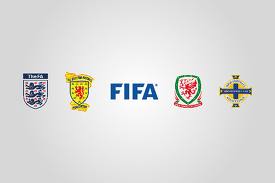February 4 – The International Football Association Board (IFAB) will discuss a clarification of the offside rule as well as consider a report on goal-line technology at its 127th Annual General Meeting on Saturday 2 March under the chairmanship of The Scottish FA in Edinburgh.
Perhaps the most important item on the agenda will be the discussion of IFAB’s own role in world football and how it conducts its consultation and decision-making processes, as well as its structure.
IFAB is made up of the four ‘home’ UK federations of England, Northern Ireland, Scotland and Wales plus four members from FIFA. It’s role is to determine the rules of the game. No resolution can be passed without six votes, effectively meaning FIFA’s agreement is required to pass any law change.
The elite membership of the board and the position of the UK federations has been a source of irritation for a number of other federations, and even within the UK there are many who believe that the board composition has held the UK federations back in terms of influence in the FIFA corridors of power.
FIFA president Sepp Blatter has always defended vigorously the role of the UK federations and the importance of stability within the board that controls the rules of the game.
The self-reform of IFAB was a proposal that stemmed from FIFA’s agreement to major reforms of its governance which were presented to the FIFA Executive Committee at the end of March 2012, and subsequently presented at the FIFA Congress in Budapest last May. How far this self-reform goes remains to be seen and is viewed by some as akin to ‘asking a turkey to vote for Christmas’.
Few will argue that there needs to a clarification of the offside rule (Law 11) and the proposal has been developed, not surprisingly, by FIFA’s Refereeing department and the IFAB technical committee (made up of Heads of Refereeing and/or technical experts of FIFA and the four British Associations). Referees and their assistants are generally the losers in offside decisions, whether they are made correctly or incorrectly.
The review of the goal-line technology systems tested at the FIFA World Club Cup in Japan is important as it is likely that the board will recommend the next stage which is logically to go with one system. The agenda states the board will receive an update on all developments by FIFA, followed by a discussion of ‘matters arising with implementation’. Additional assistant referees is the next item on the agenda which perhaps suggests the UEFA experiment with goal-line assistants might not be ruled out completely.
Other topics for discussion include the usage of electronic performance monitoring systems; the Dropped Ball (Law 8 – Start and Restart of Play) ; the use of player headscarves; and, perhaps long overdue, ‘Development in women’s’ football and the reference in the Laws of the Game’.
The Edinburgh meeting promises to be one of the more significant IFAB gatherings of recent as FIFA progresses with its reform programme leading into its Congress in May in Mauritius.
Contact the writer of this story at moc.l1734863435labto1734863435ofdlr1734863435owedi1734863435sni@o1734863435fni1734863435

